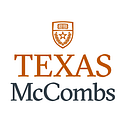HKEC’s Founder Stories | Thomas Smith, Vrify Health
There’s no common background or set pathway to becoming an entrepreneur, which is why executing on a business idea is all the more challenging and rewarding. As we continue highlighting the entrepreneurial activities of students and alumni, this month’s founder story revolves around Thomas Smith, founder of Vrify Health.
Tom, originally from Chicago, graduated from The University of Texas at Austin in 2020 with a Bachelor’s in Chinese and Business Administration. While a student, Tom joined the Air Force ROTC and, since graduating, works as a contracting officer at the USAF base in Colorado Springs.
Tom first got involved with entrepreneurship through his internship with AFWERX-Austin, where he worked out of Capital Factory in downtown Austin on a semi-autonomous drone surveying project. There he got first hand experience with well-established startups procuring equity-free grants from the Department of Defense. “These companies were getting money at insanely high valuations, and they were big dollar grants for no equity. This really made my eyes pop and got me thinking about how I could utilize such a great deal,” Tom recalls.
Inspired by his position with AFWERX, Tom began ideating a business of his own. Vrify Health was born out of Tom’s realization that people going through the healthcare process want personalization, especially concerning mental healthcare. However, with so many options, it is sometimes overwhelming or difficult to find the right therapist, while also receiving an accurate diagnosis and quality care.
Vrify is an augmented reality application allowing the user to talk with a virtual AI therapist. The AI engages in a conversation about how the user is feeling, and tracks verbal and nonverbal expressions to pinpoint the specific mental disorder they may be experiencing. The application then utilizes the gathered information to triage someone to the appropriate care, relaying the disease, severity, and other relevant information to the appropriate human care provider. After testing and trial, Tom has found that the AI therapist Vrify employs is often better than its human counterparts at identifying minute details in speech and facial expressions to provide an accurate diagnosis.
While working at AFWERX, Tom had the opportunity to pitch Vrify to the director of the unit, who signed off on it, and he was able to receive funding from the Pentagon and other federal grants. He also received further validation upon his acceptance into HKEC’s Forty Acres Founders Pre-Accelerator program.
“It’s one of the hidden gems of UT,” Tom recalls. “We got to meet awesome speakers who came in and talked to our cohort. I got matched up with a great mentor, and really enjoyed the process. We weren’t really judged on the success of our business, but rather our ability to learn and apply the skills from the program.”
“We were pretty early on when we started,” says Tom about Vrify and his Forty Acres Founders experience. “The program is designed to help people flush out their ideas and create something sustainable. All the seminars were focused on often overlooked early stage problems surrounding starting a company. We ended the term in a good position to pursue it further.”
Outside of Forty Acres Founders, Tom got involved with several other resources around UT’s campus. Tom was a member of the Cockerell School of Engineering Inventor’s Practicum, which helped him develop clinical efficacy for Vrify, and the program helped connect him with the right network and resources. He also went through The Launchpad’s TechStars fellowship in the fall semester, as well as I-Corps, the natural sciences foundation program.
When asked if having the opportunity to work on his venture alongside his academic career helped him grow as a student, Tom answered: “Starting any idea or company is inherently beneficial to your college experience because it gets you outside of that academic bubble and gives you the opportunity to create something of value. I personally learn well through hands-on activities, and by making balance sheets and cap tables and pitch decks I really felt that it boosted my experience.”
Tom’s next moves for Vrify include going through some fundraising, while concurrently building and launching the web service. He is currently applying to accelerators and growing the mental healthcare provider waitlist.
Tom’s advice for students seeking to get involved in entrepreneurship is to not be afraid of failure. “I consider myself more of a ‘Founder’ than an ‘Entrepreneur’ because I’m founding my idea into a business[…] It’s easy to create a deck and try and raise money, but actually building something that will create value for yourself and others is the end goal.”
